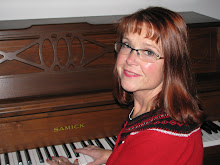Simply put, Kindermusik is a music and movement program. Each week in class you’ll play, listen, and dance to music that will impact you and your child in profound ways. That’s because every song, story, and two-step has a carefully chosen purpose in this creative curriculum—one that’s designed to stimulate and strengthen the vital neural wiring taking place in your child’s mind, right now. A Kindermusik educator will guide you every step of the way so you know how each activity contributes to your child’s overall growth and development.
The latest research with proven methods—that’s Kindermusik, too. Our child-centered curricula incorporate ongoing, in-classroom studies with our own, 30-years’ experience in music and child development. Plus, we’ve combined the best music learning methods found in Orff, Kodaly, and Suzuki.
“Take-home” books, instruments and CDs from class let you take learning with you wherever you go. All while strengthening the emotional bond between you and your child.
So whether it’s twirling under a sea of scarves, experimenting with age-appropriate instruments, singing about a scampering squirrel, creating a musical ensemble, or snuggling in your lap during story time, Kindermusik speaks your child’s language and offers her (and you!) the best music and movement class available.
Behold . . . the Power of Kindermusik!
We know we’re being dramatic, but I’m afraid we won’t apologize . . . because the research about music and children’s development is truly jaw-dropping. In the last couple of years, the eyes of the research community have turned increasingly to music, and the marvels and mysteries they have discovered are nothing short of amazing (though perhaps not exactly surprising to people who’ve regularly witnessed its effect). The bottom line: early, positive, age-appropriate experiences with music—like Kindermusik—can have a remarkable and research-proven impact on children’s learning, including language and literacy skills (e.g., vocabulary, comprehension, listening, expression); social and emotional development; mathematics and pattern-recognition skills; and even ability to plan, guide, and self-regulate behavior. It’s a lot to keep track of, so we’ve summarized the latest research on the benefits of Kindermusik-style music and movement experiences. Take a look . . .
Music & Literacy
Early music experiences can have a significant impact on literacy and reading. According to experts, learning to read depends on acquiring a variety of skills, including phonological processing, oral language, and comprehension. So when it comes to these literacy-boosting skills . . . how does Kindermusik fit in?
•Kindermusik Classes: On the Path to Reading (“Our Time”)
by Suzanne I. Barchers, Ed.D. and Heidi Gilman Bennett
Music & Math
There is no longer any doubt that there is a significant link between early music instruction and cognitive growth in certain other, “nonmusical” abilities, such as math, memory, and spatial-temporal reasoning. In fact, studies focused specifically on music for young children even suggest that these cognitive gains increase according to the number of years that students engage in active music learning, and even that the younger children are when they begin, the greater the gains will be!
The Impact of Music on Mathematics Achievement by Deanne Kells, M.A.
•e-Book (Longer)
Music & Social-Emotional Development
Research demonstrates that involvement in music and movement activities from an early age helps children develop good social and emotional skills. Research also links social and emotional development with school-readiness and even with higher academic testing scores. It’s no surprise. After all, the same skills that foster emotional security and social success – skills like confidence, curiosity, cooperation, self-regulation, and good listening – predict cognitive achievement and academic success as well.
Music & Social-Emotional Development by Molia Dumbleton, M.A., M.A. and Heidi Gilman Bennett
Why Choose Kindermusik?
It’s true that research shows music helps children become better learners, and that even a newborn emotionally responds to music. Parents respond, too: 99% of Kindermusik parents would recommend the classes to other parents*.
However, all the research in the world can’t accurately capture the look of pure delight in your child’s eyes when she experiences the sights and sounds of Kindermusik, both in the classroom and at home.
With 30 years experience in developing early learning curricula and products, Kindermusik is the world’s most trusted name in music and movement classes for children newborn to seven. Kindermusik curricula are based upon the principles of early development applied to developmentally appropriate practice as defined by the National Association for the Education of Young Children (NAEYC). Plus, the Kindermusik philosophy is rooted in the work of early childhood development experts like Piaget, Montessori, and Greenspan.
Our full curricula offer your child seven years of musical learning that involves every aspect of your child’s growth and development: language, motor skills, social skills, cognitive development, emotional growth, and musicality. Throughout the Kindermusik experience, a trusted and trained Educator will guide you and your child through every musical and developmental milestone and help you understand what is happening all along the way. Each semester, a new set of At Home Materials brings the experience out of the classroom and into your every day routines and rituals.
Come experience for yourself why more parents around the world choose Kindermusik than any other music and movement program.
(*Harris Interactive, November 2005)

